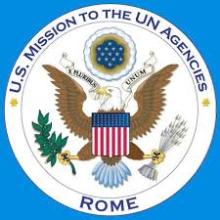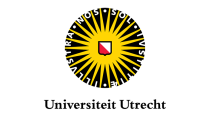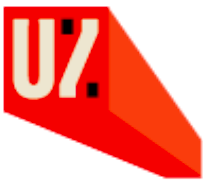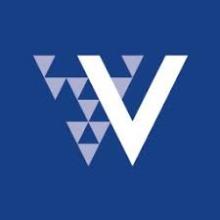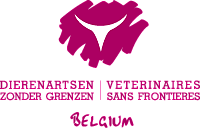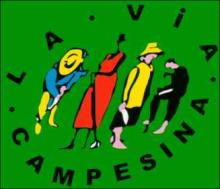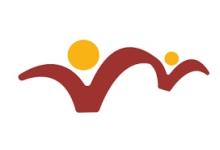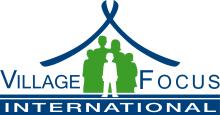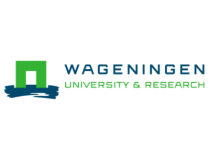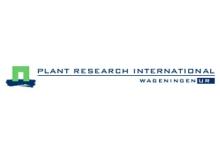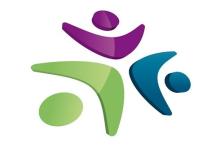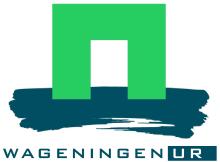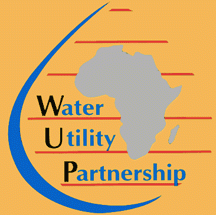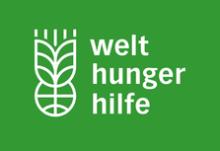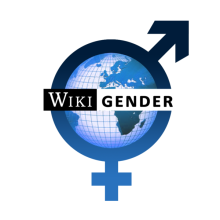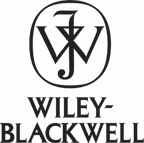The Land Library includes resources from more than 1,900 national and international information providers. Learn more about the organizations and institutions using the Land Portal to share their open-access research, data and stories.
US Mission to the UN Agencies in Rome
About the USUN Mission
Rome, as headquarters of the three principal organizations dedicated to food and agriculture, is at the center of international efforts to promote sustainable development and combat world hunger.
The U.S. Mission in Rome serves as a link between the U.S. Government and the Rome-based international organizations. These include the UN Food and Agriculture Organization (FAO), the World Food Programme (WFP), and the International Fund for Agricultural Development (IFAD).
With staff representing the Departments of State, Agriculture, and the Agency for International Development, the U.S. Mission specifically works to advance UN efforts in the areas of emergency food assistance, food safety standards, agriculture, fisheries, forests, and financing for rural development.
As the largest contributor to the UN system worldwide, the United States also has a large stake in ensuring that the organizations are well run and that their activities complement and enhance U.S. national and foreign policy objectives.
In addition, the U.S. Mission represents the U.S. Government to three other international organizations based in Rome, namely, the International Centre for the Study of the Preservation and Restoration of Cultural Property (ICCROM), the International Development Law Organization (IDLO), and the International Institute for the Unification of Private Law (UNIDROIT).
USAID Rwanda LAND Project
The LAND Project is a five year program supported by the United States Agency for International Development (USAID). Its primary goal is strengthening the resilience of Rwandan citizens, communities and institutions and their ability to adapt to land-related economic, environmental and social changes.
Resilience is defined as “the ability to withstand or recover from difficult conditions.” It also comprises the ability of human and ecological systems to recover from shocks or difficult changes, and to transform to a better condition by responding flexibly and creatively to stress factors. In Rwanda, land tends to be one of the primary assets citizens rely on to buffer against difficult conditions and rapid change.
The project’s central objectives are twofold:
1.Increased capacity of local Rwandan institutions to generate high quality, evidence-based research on land-related issues that can be used by the Government, civil society organizations, and Rwandan citizens.
2. Increased understanding of land laws, policies, regulations, and legal judgments on land-related issues by GOR officials, local civil society organizations, research institutes and citizens.
Key outcomes of the project include:
- Holding annual National Land Research Agenda workshops to establish the research priorities of land sector stakeholders that the LAND Project will support. These workshops bring together multiple stakeholders from government, civil society and the research community;
- Supporting research on land-related issues through competitive awards to Rwandan research institutions, universities, and civil society organizations, and providing tailored capacity building assistance to improve research and advocacy capabilities;
- Offering training and other support to legal assistance providers to enhance their capacity to support women and vulnerable populations in understanding and realizing their land rights;
- Training local land authorities on the implementation of the land law and regulations.
- Carrying out research on critical land issues, including gendered land rights in practice, community rights to resources in and around protected areas, and expropriation.
- Managing a land-focused website to improve research, communications, and policy advocacy efforts that are focused on land, and to act as a vehicle for enhancing collaboration between actors working in the land sector;
- Providing organizational development support to civil society organizations supporting women’s land rights.
- Supporting innovative and coordinated communications approaches by civil society and government that enhance the knowledge of Rwandan citizens about research findings and their land rights.
Because the LAND Project is a five year endeavor, we are seeking an institution that has the interest, capacity, skills and resources to eventually take over hosting and maintenance of the website, ensuring it stays up-to-date and relevant to the land sector stakeholder community. If your organization is potentially interested in assuming management of this site, please contact us and tell us why you believe your institution would be an ideal candidate.
USGS
We provide science about the natural hazards that threaten lives and livelihoods, the water, energy, minerals, and other natural resources we rely on, the health of our ecosystems and environment, and the impacts of climate and land-use change. Our scientists develop new methods and tools to enable timely, relevant, and useful information about the Earth and its processes.
Utrecht University
Utrecht University is a university in Utrecht, the Netherlands. It is one of the oldest universities in the Netherlands. Established March 26, 1636, it had an enrollment of 30,449 students in 2012, and employed 5,295 faculty and staff. In 2011, 485 PhD degrees were awarded and 7,773 scientific articles were published. The 2013 budget of the university was €765 million.
The university is rated as the best university in the Netherlands by the Shanghai Ranking of World Universities 2013, and ranked as the 13th best university in Europe and the 52nd best university of the world.
Utrecht University motto
The university's motto is "Sol Iustitiae Illustra Nos," which means "Sun of Justice, shine upon us." This motto was gleaned from a literal Latin Bible translation of Malachi 4:2. (Rutgers University, having a historical connection with Utrecht University, uses a modified version of this motto.)
Source: Wikipedia (d.d. November 13th 2017)
Utrecht University Library Open Access Journals
Utrecht University Library, as part of Utrecht University (the Netherlands), is actively involved in the educational and academic culture in Utrecht. Utrecht University considers open access to be a high priority, at the university, in The Netherlands and also worldwide. On May 9, 2005 the Executive Board signed the Berlin Declaration. In 2009 Utrecht University committed itself to making publications from their scientists freely available in the Utrecht University Repository. In 2013 Utrecht University started an Open Access Fund that is still supported today.
Uttaran
Uttaran, which means ‘transition’, in Bangla language, is a people centred organisation using a rights based approach to alleviate poverty, diversify livelihood opportunities and empower poor communities throughout the southwest region and gradually expanding to other parts of Bangladesh. The core focus of Uttaran programs are human rights, land rights and agrarian reform, community based river basin management, sustainable water management, adaptation to climate change, ecological agriculture and food security.
Our vision & mission
Uttaran’s vision and mission reflects our aspiration to work in partnership with local communities and vulnerable individuals to reduce poverty and improve lives.
Vision: A society with gender, class and caste equality.
Mission: Equip the disadvantaged people with the tools needed to deal with their social, environmental, health, economic and cultural issues and concerns.
Goals
We develop our strategies in partnership with local communities and marginalized groups. This people centered approach is vital to making sure that we are able to fulfill our goals.
- Eradicate poverty by creating enabling environment for income, asset base for the poor
- Promote environment friendly sustainable agricultural practices
- Ensure education, health services to the underprivileged and extreme poor
- Ensure people’s participation and good governance
- Ensure quality of life in time of natural and artificially created disaster
- Promote equality, human rights and social justice
Strategies
- Organization and capacity building for the poor
- Ensure sustainable livelihood practices for women and poor
- Ensure women and poor’s entitlement to social services (education, health, safety net)
- Raising voice, influence and agency of poor through advocacy, campaigns, lobbying and networking
- Mainstreaming of rights, gender and inclusion issues
- Building pro poor partnership
- Result Based Management (RBM) practices
Values
- Accountability and transparency
- Non-discrimination and mutual respect
- Gender equality
- Commitment
- Team spirit
- Creativity
- Conservation of resource
UzInvestigations
UzInvestigations is a civic initiative administered by Ulster University in partnership with the Uzbek Forum for Human Rights. Drawing on data science, investigative methodologies, and digital analytics, UzInvestigations produces resources and analysis, which help forensically scrutinise corporate and government power in Uzbekistan. Our aim is to promote transparency, good governance, human rights, and civic engagement.
UzInvestigations operates two linked websites. UzInvestigations’ “Corporate Spotlight” is a public database. It provides researchers, journalists, activists, and citizens, with access to a large-range of integrated data-sets that allow enhanced due diligence investigations to be conducted into companies, corporate personnel, and government decisions (see further readings for information on the methodology underpinning this project). UzInvestigations’ “Bulletins” is a reporting and training platform. It publishes blogs, articles, reports, and policy briefs, that analyse the integrity of corporate actors and public agencies at the heart of economic and social life in Uzbekistan. Bulletins will also publish training resources designed to support data driven investigations.
UzInvestigations works with a range of media organisations to co-produce outstanding investigative reporting on Uzbekistan in multiple languages. This includes the Revizor multimedia series produced by Uzbek language media service, El-Tuz.
Van Vollenhoven Institute
The VVI seeks to develop and disseminate socio-legal knowledge and theory regarding the interaction between law, governance and society. More specifically, the Institute studies the emergence, functioning, and evolution of legal institutions.
The VVI combines a top-down with a bottom-up approach; it considers perspectives of both state agents, citizens and other non-state actors. And driven by normative concerns, the VVI relies on conceptual frameworks that relate to the rule of law, access to justice and legal pluralism.
In its research, the Institute focuses both on the Global South and the Global North. The VVI has particular expertise in Europe, Africa (including North Africa) and Indonesia. The Institute combines legal and sociological/anthropological tools of inquiry. It has a strong track record in fieldwork and qualitative research but increasingly also applies quantitative research methods.
The VVI is committed to collaboration with partners active in the regions of study. In this manner the Institute aims at making its research and findings available to a wide variety of public institutions, such as local NGOs, international organisations, and government institutions. In addition, collaboration with local partners allows the VVI to participate in public discussions about the role of law in society, in furtherance of social justice. The VVI is actively involved in international and national networks, such as the Law & Society Association, the Commission on Legal Pluralism, the Law & Development Research Network, and the Dutch Association of Law & Society.
Vétérinaires Sans Frontières Belgium
Vétérinaires Sans Frontières Belgium exists for and by veterinarians. We are here to help African veterinarians and cattle farmers. With healthy animals, they can build a sustainable future for their family.
Veterinarios Sin Fronteras
QUIÉNES SOMOS
Somos una asociación formada por personas que creemos en la necesidad de cambiar el sistema agroalimentario actual, que oprime y expulsa a las comunidades rurales, y destruye el medio ambiente. Este cambio pasa por la consecución de la Soberanía Alimentaria.
VISIÓN: La consecución de una sociedad justa, equitativa y solidaria, a través del ejercicio de una solidaridad responsable y respetuosa.
MISIÓN: Promover un modelo de desarrollo rural justo en favor de la Soberanía Alimentaria y generar en la sociedad una conciencia solidaria como principio hacia la transformación social.
VALORES: Ecologista / Aconfesional / Independiente / Apartidaria /Feminista
Via Campesina
What is La Via Campesina?
The international peasant's voice
Unity among peasants, landless, women farmers and rural youth
La Via Campesina is the international movement which brings together millions of peasants, small and medium-size farmers, landless people, women farmers, indigenous people, migrants and agricultural workers from around the world. It defends small-scale sustainable agriculture as a way to promote social justice and dignity. It strongly opposes corporate driven agriculture and transnational companies that are destroying people and nature.
La Via Campesina comprises about 164 local and national organizations in 73 countries from Africa, Asia, Europe and the Americas. Altogether, it represents about 200 million farmers. It is an autonomous, pluralist and multicultural movement, independent from any political, economic or other type of affiliation.
Globalizing hope, globalizing the struggle!
La Via Campesina is built on a strong sense of unity and solidarity between small and medium-scale agricultural producers from the North and South. The main goal of the movement is to realize food sovereignty and stop the destructive neoliberal process. It is based on the conviction that small farmers, including peasant fisher-folk, pastoralists and indigenous people, who make up almost half the world's people, are capable of producing food for their communities and feeding the world in a sustainable and healthy way.
Women play a crucial role in the Via Campesina work. According to the FAO, women produce 70% of the food on earth but they are marginalized and oppressed by neoliberalism and patriarchy. The movement defends women rights and gender equality at all levels. It struggles against all forms of violence against women.
Defending Food Sovereignty
Via Campesina launched the idea of “Food Sovereignty” at the World Food Summit in 1996. This idea has now grown into a global people's movement carried by a large diversity of social sectors such as the urban poor, environmental and consumer groups, women associations, fisher-folks, pastoralists and many others. It is also recognized by several institutions and governments.
Food sovereignty is the right of peoples to healthy and culturally appropriate food produced through sustainable methods and their right to define their own food and agriculture systems. It develops a model of small scale sustainable production benefiting communities and their environment. It puts the aspirations, needs and livelihoods of those who produce, distribute and consume food at the heart of food systems and policies rather than the demands of markets and corporations.
Food sovereignty prioritizes local food production and consumption. It gives a country the right to protect its local producers from cheap imports and to control production. It ensures that the rights to use and manage lands, territories, water, seeds, livestock and biodiversity are in the hands of those who produce food and not of the corporate sector. Therefore the implementation of genuine agrarian reform is one of the top priorities of the farmer's movement.
Food sovereignty now appears as one of the most powerful response to the current food, poverty and climate crises.
Vikalp Sangam
हिंदी में पढ़ने के लिए नीचे देखीये ।
The name 'Vikalp Sangam' is Hindi for 'Alternatives Confluence'.
As the world hurtles towards greater ecological devastation, inequalities, and social conflicts, the biggest question facing us is: are there alternative ways of meeting human needs and aspirations, without trashing the earth and without leaving half of humanity behind?
Across India (as in the rest of the world), this question is being answered by a multitude of grassroots and policy initiatives: from meeting basic needs in ecologically sensitive ways to decentralised governance and producer-consumer movements, from rethinking urban and rural spaces towards sustainability to struggles for social and economic equity. (Watch a slidehow showing how our lifestyles are trashing the earth and some of the alternatives that have come up.)
Unfortunately, documentation and public awareness of such initiatives in India is poor. There are very few attempts to consolidate and present in a cohesive manner, the range of these alternatives.
We offer this website as one response to these gaps. It hopes to feature alternatives in the full range of human endeavour as they take place in India, and through this to help build bridges amongst them, learn from each other, and together present a challenge to the mainstream system. This is part of a larger process in which the co-host organizations are involved, at networking alternatives in India and internationally.
Alternative initiatives featured here can be practical activities, policies, processes, technologies, and concepts/frameworks. They can be practiced or proposed/propagated by communities, government, civil society organizations, individuals.
It is proposed that alternatives are built on the following spheres (or overlapping spheres) seen as an integrated whole; in this or other forms these have been expressed by many in the past, but are re-emerging in the new contexts of the 21st century:
![]()
-
Ecological wisdom, integrity and resilience: maintaining the eco-regenerative processes that conserve ecosystems, species, functions, cycles; respect for ecological limits at various levels, local to global; and the infusion of ecological wisdom and ethics in all human endeavour.
-
Social well-being and justice, including lives that are fulfilling and satisfactory physically, socially, culturally, and spiritually; where there is equity between communities and individuals in socio-economic and political entitlements, benefits, rights and responsibilities; where there is communal and ethnic harmony; where hierarchies and divisions based on faith, gender, caste, class, ethnicity, ability, and other attributes are replaced by non-exploitative, non-oppressive, non-hierarchical, and non-discriminatory relations; and where collective and individual human rights are ensured.
-
Direct and delegated democracy, where decision-making starts at the smallest unit of human settlement, in which every human has the right, capacity and opportunity to take part, and builds up from this unit to larger levels of governance by delegates that are downwardly accountable to the units of direct democracy; and where decision-making is not simply on a ‘one-person one-vote’ basis but rather consensual, while being respectful and supportive of the needs and rights of those currently marginalised, eg some minorities.
-
Economic democracy, in which local communities and individuals (including producers and consumers, wherever possible combined into one as ‘prosumers’) have control over the means of production, distribution, exchange, markets; where localization is a key principle, and larger trade and exchange is built on it on the principle of equal exchange; where private property gives way to the commons, removing the distinction between owner and worker.
-
Cultural diversity and knowledge democracy, in which pluralism of ways of living, ideas and ideologies is respected, where creativity and innovation are encouraged, where the generation, transmission and use of knowledge (traditional/modern, including science and technology) are accessible to all, and where spiritual and/or ethical learning and deepening are central to social life.
Of course no single initiative may have all these features, but even if they have one they are worth featuring here, so long as they are not seriously threatening the others. For instance, we may not put up a brilliant new green technology that is so expensive it will be usable only for the rich, unless it also has potential to reach the poor. Or a greening initiative by a communally fundamentalist organization. Or a radical political experiment that is bent on clearfelling a forest to make its point. There will always be greys in the spectrum of alternatives, but we will learn as we proceed how to distinguish genuine attempts from superficial or counterproductive ones.
Village Focus International
Despite our growth, we have remained true to our founding spirit: to emphasize and support local leadership, decision-making and ownership, in both Laos and Cambodia.
Vrije Universiteit Amsterdam
The Vrije Universiteit Amsterdam (abbreviated as VU, VU University Amsterdam, "Free University Amsterdam") is a university in Amsterdam, Netherlands, founded in 1880. The VU is one of two large, publicly funded research universities in the city, the other being the University of Amsterdam (UvA).The literal translation of the Dutch name Vrije Universiteit is "Free University". "Free" refers to independence of the university from both the State and Christian Church. Both within and outside the university, the institution is commonly referred to as "the VU". The VU University Amsterdam was chosen as the best university in Amsterdam by students in 2018.
Wageningen Academic Publishers
Wageningen Academic Publishers is a publishing company in the field of life sciences that publishes scientific journals as well as monographs, textbooks, and proceedings. The company was founded in 2002 as successor of Wageningen Pers. The company publishes books in the fields of animal, food, social, plant, and environmental sciences.
Wageningen Economic Research
Wageningen Economic Research (WER), formerly Landbouw-Economisch Instituut (LEI) Wageningen UR, is one of the research institutes of Wageningen University and Research Centre (WUR). Within the Netherlands and Belgium, WER is the leading institute for social-economic research in the fields of agriculture, horticulture and fisheries, the management of rural areas, the agricultural sector and the production and consumption of food. Through this research, WER provides support for the decisions that governments and businesses need to make in the fields of competitiveness, the management of production chains, spatial planning, environmental protection, natural resources, the European Common Agricultural Policy and global trading.
WER also performs legal and service-related tasks for the Ministry of Agriculture, Nature and Food Quality. The Agricultural Economic Report and other annual reports present an impression of the financial and economic position of companies and sectors.
Wageningen Environmental Research
Wageningen Environmental Research (also known as Alterra) is the Dutch research institute for our green living environment. We offer a combination of practical and scientific research in a multitude of disciplines related to the green world around us and the sustainable use of our living environment. Our expertise includes knowledge of water, nature, biodiversity, climate, landscape, forest, ecology, environment, soil, landscape and spatial planning, geo-information, remote sensing, flora and fauna, urban green, man and society etc.
Wageningen Environmental Research is part of Wageningen University & Research. In research and education we closely co-operate with the department of Environmental Sciences at Wageningen University & research. The exchange of expertise and capacity and the match between fundamental and practical research in various projects give us a scientific advantage.
Wageningen Environmental Research was established in the year 2000 after a merger of the DLO-Starting Centre and the Institute for Forest and Nature Research (Bos- en Natuuronderzoek (IBN)). The Stichting voor Bodemkartering (STIBOKA), Instituut for Cultuurtechniek en Waterhuishouding (ICW) as well as other research institutes also merged into the Research Institute of Wageningen Environmental Research.
Wageningen Marine Research
Wageningen Marine Research (formerly IMARES) is the Netherlands research institute established to provide the scientific support that is essential to developing policies and innovation in respect of the marine environment, fishery activities, aquaculture and the maritime sector. Wageningen Marine Research is:
- an independent, objective and authoritative institute whose aim is to find the right equilibrium between marine ecology, seafood production and maritime economy;
- a key, proactive player in national and international marine research networks (including ICES and EFARO).
We carry out research for both national authorities and specific research programmes (50%), international RTD programmes (30%) and contract research for private, public and NGO partners (20%). Our key focal research areas cover ecology, environmental conservation and protection, fisheries, aquaculture, ecosystem based marine economy, coastal zone management and marine governance.
Wageningen Plant Research
Wageningen Plant Research (WPR) (previously known as "Plant Research International") is the largest plant research institute in The Netherlands and conducts multidisciplinary research in the fields of breeding, agronomy, genomics, bioinformatics and plant-environment interactions. Together with plant-research related chairs from Wageningen University it forms the Plant Sciences Group, which is part of Wageningen University & Research.
WPR plays an important role in many national and international biotechnology and genomics initiatives in which functional genomics research programs have been established with a key aim to identify complex genetic and biochemical mechanisms underlying quality traits.
Wageningen School of Social Sciences
The Wageningen School of Social Sciences (WASS) promotes research that increases our understanding of social processes and designs practices around challenges in the domains of food, agriculture, environment, health and development. WASS provides an enabling environment for internationally oriented scholars from a diverse set of disciplinary, interdisciplinary and trans-disciplinary research traditions.
WASS strives to make high-quality academic contributions, to critically engage in social debates and to contribute to societal problem solving and innovation. It offers in-depth training that provides PhD candidates with a suitable background for a career in academic and applied research, or for other leading societal positions.
Wageningen University & Research
Wageningen University & Research is a collaboration between Wageningen University and the Wageningen Research foundation.
That is the mission of Wageningen University & Research. A staff of 6,500 and 10,000 students from over 100 countries work everywhere around the world in the domain of healthy food and living environment for governments and the business community-at-large.
The strength of Wageningen University & Research lies in its ability to join the forces of specialised research institutes and the university. It also lies in the combined efforts of the various fields of natural and social sciences. This union of expertise leads to scientific breakthroughs that can quickly be put into practice and be incorporated into education. This is the Wageningen Approach.
The scientific quality of Wageningen University & Research is affirmed by the prominent position we occupy in international rankings and citation indexes.
The domain of Wageningen University & Research consists of three related core areas:
- Food and food production
- Living environment
- Health, lifestyle and livelihood
Wageningen University & Research has branches all over The Netherlands and abroad. A large number of lecturers, researchers and other employees are based at Wageningen Campus.
Water Utility Partnership
The Water Utility Partnership (WUP) for Capacity Building is a partnership organisation founded by the Union of African Water Suppliers (UAWS) and the International Training Network Centers in Africa – CREPA and TREND. Following a consultative meeting on institutional reform in the Water Sector held in Johannesburg in 1996, WUP was established to address key challenges facing utilities and their partners in the region. The primary constituency for WUP is the Union of African Water Suppliers (UAWS), a membership association of utilities in Africa. The Union brings together utilities from a large number of countries throughout Africa.
Primary aim: WUP was established with the primary aim of investigating various issues of concern to utilities in the region. WUP is currently implementing four projects in partnership with other actors in the region and with support from bilateral and multilateral agencies. Information and material gathered through WUP is targeted primarily at utilities, but is of relevance to other partners.
Key challenges: One of the key challenges identified by WUP is the need to identify ways of improving water supply and sanitation service delivery to low income urban communities. This toolkit has been developed to assist utilities understand and address the water and sanitation requirements of low income communities. Information contained in the toolkit has been collected through wide consultation and case study in nine countries within the region.
WaterNet
Building capacity for water resources management in southern Africa
WaterNet is a regional network of university departments and research and training institutes specialising in water. The network aims to build regional institutional and human capacity in Integrated Water Resources Management (IWRM) through training, education, research and outreach by harnessing the complementary strengths of member institutions in the region and elsewhere. WaterNet member institutions have expertise in various aspects of water resources management and are based in Southern and East Africa.
The key success of the WaterNet programme is the integration of the objectives, each reinforcing and complementing the other. WaterNet’s achievements include the establishment of a unique regional IWRM Masters programme hosted by seven member institutions, strengthening the water sector by delivering more than 378 masters graduates (42% women) through our regional Master in IWRM programme. Retention of alumni is excellent, with a recent tracer survey reporting that 95% of WaterNet alumni are currently working in Southern or East Africa, 57% for the same employer as before their Masters programme and 49% in permanent positions. A majority of alumni (40%) work in the state sector. WaterNet has also trained more than 737 water professionals (32% women) through 48 professional short courses, held 14 regional symposia and published 4 books and 14 journal special issues.
We Effect
We Effect (formerly Swedish Cooperative Centre) was funded in 1958. We are a development cooperation organisation applying a long-term, rights based approach in order to effect change.
Our guiding principle is support to self-help initiatives. We work in 25 countries across four continents, from Guatemala, via Zambia and Moldova to the Phillipines. Our focus areas are Rural development, Housing, Gender equality and Access to land.
There are no shortcuts out of poverty. Therefore, the key factor in everything we do is Togetherness. Poverty can be alleviated by empowering individuals and organisations, creating improved income levels, better and more sustainable farming, adequate housing and equal rights for all.
We know that people find ways out of poverty by working together. For this reason we support people to organise and acquire new knowledge. This, in turn, helps create the possibility to make a permanent move away from poverty.
Weaver Press
Weaver Press is a dynamic independent publishing house formed in 1998 to publish books from and about Zimbabwe.
Weaver’s growing fiction list now features over 120 Zimbabwean short story writers, and our novelists include several international prize-winners who were first published by Weaver Press. Our non-fiction list focuses on political and social history, the environment, media issues, and women and children’s rights; it features many esteemed scholars from inside and outside Zimbabwe whose work looks at Zimbabwe’s developments from a wide range of viewpoints.
Weaver Press also works closely with NGO partners in the arts and culture, human rights and development. We undertake freelance work on their behalf in the research and publication of texts. Enquiries from interested organisations are always welcome.
Through our links with libraries, universities, literary associations, book fairs, and NGOs, and by offering access to a range of networks, we ensure that information and ideas are widely spread
Welthungerhilfe
Welthungerhilfe is one of the largest private aid organisations in Germany, independent of politics and religion. It was established in 1962, as the German section of the "Freedom from Hunger Campaign", one of the world's first initiatives aimed at the eradication of hunger.
What we do
We fight for the eradication of hunger and poverty. Our aim is to render our work unnecessary. We provide aid from a single source: From rapid disaster relief to long-term development cooperation projects. In 2015, we were able to support 7.3 million people with 387 overseas projects in 40 countries. Since its establishment, Welthungerhilfe has supported more than 8,120 overseas projects with around 3.03 billion Euro, 5,746 of which have been self-help projects (more facts and figures in the latest annual report).
How we work
Help to self-help is our guiding principle; together with local partner organisations we strengthen structures on a grassroots level and ensure a long-term success of our projects. Moreover, we inform the public and advise politics – nationally and internationally. We thus fight for change of the circumstances that lead to hunger and poverty.
Wikigender
Wikigender is a global online collaborative platform linking policymakers and experts from both developed and developing countries to find solutions to advance gender equality. It provides a centralised space for knowledge exchange on key emerging issues, with a strong focus on the Sustainable Development Goals (SDGs), and in particular on SDG 5. Both English and French speakers worldwide can discuss current issues, relevant research and emerging trends on gender equality.
Wikigender places the spotlight on gender data and statistics as a complement to the Gender, Institutions and Development Database (GID-DB) and the Social Institutions and Gender Index (SIGI), both developed by the OECD Development Centre.
Wikigender is also:
- An online community
- An inclusive platform
- An informative and participatory platform
- Dedicated to quality
Wildlife Conservation Society
Conservamos la vida silvestre y los paisajes naturales en todo el mundo a través de ciencia aplicada, acciones concretas de conservación y educación, e inspirando a las personas a valorar la naturaleza.
Wildlife Producers Association of Zambia
The aim of the Wildlife Producers Association of Zambia is:
To foster the growth of the private wildlife estate and especially its national contribution to food production and security, job creation and community development, wildlife and wildlife habitat conservation and private sector development.
This aim will be achieved via 6 specific lines of business which are:
To stimulate the interest of non-member, especially indigenous Zambians, Zambian companies or communities to become a wildlife producer and member;
To provide technical information and advice to members and non-member in the private management, production, care and trade of wildlife;
To provide information and advice to members on the laws, procedures and practices of the Government, its agencies and authorities;
To represent members, and defend their interests, on private wildlife estate technical, legal and policies issues that may affect all the estate and its members;
To centralize and analyse information and statistics on the private wildlife estate and report to members and relevant government authority;
To represent with members, partners and clients, by delegation, the wildlife authority, as agreed with said authority.
Wiley-Blackwell
Wiley-Blackwell is the international scientific, technical, medical, and scholarly publishing business of John Wiley & Sons. It was formed by the merger of John Wiley's Global Scientific, Technical, and Medical business with Blackwell Publishing, after Wiley took over the latter in 2007.[1]
As a learned society publisher, Wiley-Blackwell partners with around 750 societies and associations. It publishes nearly 1,500 peer-reviewed journals and more than 1,500 new books annually in print and online, as well as databases, major reference works, and laboratory protocols. Wiley-Blackwell is based in Hoboken, New Jersey (United States) and has offices in many international locations including Boston, Oxford, Chichester, Berlin, Singapore, Melbourne, Tokyo, and Beijing, among others.
Wiley-Blackwell publishes in a diverse range of academic and professional fields, including in biology, medicine, physical sciences, technology, social science, and the humanities.[2]
Access to more than 1,500 journals, OnlineBooks, lab protocols, electronic major reference works and other online products published by Wiley-Blackwell is available through Wiley Online Library,[3] which replaced the previous platform, Wiley InterScience, in August 2010.
Source: Wikipedia

